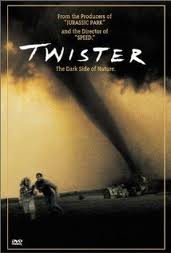Het Filmfonds denkt dat Nederlanders van drama-films houden.
Hun beleid is dat alle genres aan bod moeten komen. Maar de werkelijkheid is
anders:
De commissies geven al jaren ruim 90% van het film-geld aan
drama-films, vaak meer nog. Dus niet aan genre-films als actie, comedy.
Laten we
de cijfers bekijken van het Nederlands bioscoopbezoek van de afgelopen 20 jaar:
van januari 1991 tot maart 2011 volgens de distributeurs (zie onder).
De top 100 van
de best bezochte bioscoopfilms door Nederlanders ziet er zo uit:
Genre: Actie/avontuur/sf: 48
Genre: Familie-animatie: 18
Genre: Oorlog/rampenfilm: 10
Genre: Comedy: 7
Genre: Rom-com/musical: 5
Genre: Familiefilm:
4
Genre: Epic/love: 3
Genre: Drama: 1
Wordt het beter bij de volgende 100 best bezochte
bioscoopfilms?
Zeker: Naar gelang de bezoekcijfers zakken, komen er meer
iets drama-films: Namelijk 7. De rest van de genres blijft gelijk, in
verhouding.
Conclusie: Als je naar de bezoekcijfers kijkt, gaan
Nederlanders het liefst naar het genre actie/avontuur/sf. En het minst lief
naar het genre drama.
Nu gaat ruim 90% van het geld van de Filmfonds-commissies
naar het genre drama. Terwijl nog geen 10% van de Nederlanders er heen gaat.
Wat betekent dat? Andere genres stimuleren, om te zorgen dat
meer Nederlandse films succesvol worden? Dat lijkt een logische, waterdichte conclusie.
Maar waarom gebeurt dat dan niet? Een belangrijk punt is dat je daar goede kennis van deze genres voor nodig hebt.
We hebben weliswaar een hoop goede dramaturgen en scenaristen, maar er zijn er maar heel weinig, die echt goede kennis van andere genres hebben dan drama.
Daarom beoordelen ze filmplannen met andere genres meestal met de kennis, die ze wel hebben: Drama.
En dat wordt nooit wat.
Ik hoor en zie het steeds weer om me heen, en krijg klacht na klacht: Een thriller of een horror-script wordt weer beoordeeld volgens de regels van drama.
Daardoor weet je altijd het oordeel van de film-commissie al van te voren: In mooie woorden staat er eigenlijk dit: "Dit actie-script of dit horror-script voldoet niet aan hun regels van het genre drama".
Nee, logisch: Het is geschreven volgens de regels van de actie- of horror-genre. Je zegt ook niet tegen een drama-scenario: Dit drama-scenario voldoet niet aan de regels van het horror-genre, dus wijzen we het af.
Een probleem is dit: Veel "beslissers" vinden genre-films ook vreselijk, en zijn daar openlijk in: Dat zie je bijvoorbeeld HIER. Ze willen alleen maar drama.
Dat is helemaal niet erg: Als je als professional maar vanuit voldoende kennis over de verschillende genres beoordeelt.
Maar daar ontbreekt het aan, aan gedegen kennis over andere genres.
Dat geeft ook nog niet, als je dan maar bijleert.
Zo lang de "beslissers" (commissieleden, dramaturgen) niet serieus een goede kennis van andere genres aanleren, zal elk genre-filmplan in Nederland altijd verkeerd beoordeeld worden, namelijk volgens de regels van het enige genre, dat ze kennen: drama.
Dat is in andere landen, en in andere beroepen ondenkbaar. En dat is ook anders dan het beleid van het Filmfonds beweert (en dus in de praktijk niet doet, haar beleid in feite niet uitvoert.)
Hoe lossen we dit op?
Het wordt tijd dat we "beslissers" de mogelijkheid geven om goed opgeleid te worden in andere genres, anders blijven we de komende 20 jaar nog steeds een schraal filmland met slechts 1 genre.
En dan zal de top 100 best bezochte films er de komende 20 jaar weer zo uit zien: 99% van de Nederlanders gaan niet naar een Nederlandse- maar naar buitenlandse film.
















